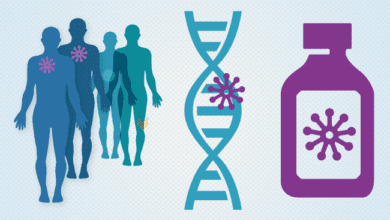Mesothelioma: Causes, Symptoms, and Treatment Options

Mesothelioma, an uncommon yet highly aggressive form of cancer, is strongly associated with prolonged asbestos exposure. This article serves as an informative guide, delving into what is mesothelioma and the intricate web of causes, symptoms, and the range of available treatment options for this serious ailment.
Understanding the Causes of Mesothelioma
Mesothelioma’s primary instigator is exposure to asbestos, a mineral frequently employed in various construction materials due to its fire-resistant properties. Tragically, this seemingly advantageous feature hides the danger it poses.
When asbestos fibers are disturbed, they become airborne, and when inhaled, they can lodge themselves in the delicate tissues lining the lungs, heart, and abdomen. Over time, these fibers inflict gradual yet relentless damage to the cells, sparking inflammation and genetic mutations that eventually culminate in mesothelioma. What once seemed a protective shield against fire becomes a ticking time bomb within the body.
Recognizing the Symptoms of Mesothelioma
The early diagnosis of mesothelioma presents a significant challenge due to the vague nature of its symptoms, often mistaken for other, less severe conditions. A persistent, nagging cough and unexplained weight loss could easily be attributed to a common cold or flu. Yet, these seemingly innocuous signs can sometimes hide the insidious presence of mesothelioma.
Shortness of breath, persistent dull chest pain, and fatigue can further complicate matters, making timely detection all the more crucial. A careful understanding of one’s medical history, especially if asbestos exposure is involved, combined with regular medical check-ups, might lead to an early diagnosis.
Exploring Treatment Options
- Surgery and Radiation: Medical science offers surgical and radiation-based interventions for mesothelioma patients. Surgery can involve the removal of tumors, affected lung linings, or even entire lungs in advanced cases. This is akin to a surgeon meticulously excising a cancerous growth, hoping to sever the root of the problem. On the other hand, radiation therapy employs a targeted approach, using high-energy rays to shrink tumors and thwart their growth. These measures not only address the physical aspects of the disease but also offer a chance at a better quality of life.
- Chemotherapy: Chemotherapy, a treatment familiar to many, involves administering drugs that target fast-growing cells, like cancer cells. These drugs can be ingested orally or intravenously, spreading throughout the body and targeting any lurking cancer cells. While chemotherapy has its side effects, the hope is that the benefits outweigh the challenges, contributing to the fight against mesothelioma.
- Immunotherapy: Imagine your body’s immune system as an army primed to defend against invaders. Immunotherapy trains this army to recognize and attack cancer cells more effectively, offering a promising approach in the battle against mesothelioma. Enhancing the body’s natural defenses represents a new dawn in cancer treatment—a beacon of hope in modern medicine.
- Targeted Therapy: In a world of precision, targeted therapy is a testament to medical science’s intricacies. This method zeroes in on specific molecules that fuel the growth and spread of cancer cells. By manipulating these molecules, targeted therapy aims to halt the relentless march of mesothelioma cells while sparing healthy ones. It’s akin to crafting a key that fits a specific lock—offering a pathway to targeted healing.
- Palliative Care: Amid the fight against mesothelioma, palliative care emerges as a nurturing embrace. It focuses not on eradicating the disease but on improving the patient’s quality of life. This holistic approach tends to patients’ and their families’ physical, emotional, and psychological needs. In the face of such a formidable adversary, palliative care becomes a soothing balm—a respite from the storm.
ELSM Law states, “The mesothelium helps protect the organs by producing a special lubricating fluid that allows organs to move around.”
As you traverse the intricate terrain of mesothelioma, armed with knowledge about its origins, symptoms, and available treatment avenues, you stand better prepared. While prevention through minimizing asbestos exposure remains paramount, early diagnosis and comprehensive treatment provide a glimmer of hope. Through awareness and understanding, we stand united in supporting those grappling with mesothelioma while championing ongoing research to illuminate new paths toward effective treatment strategies.




